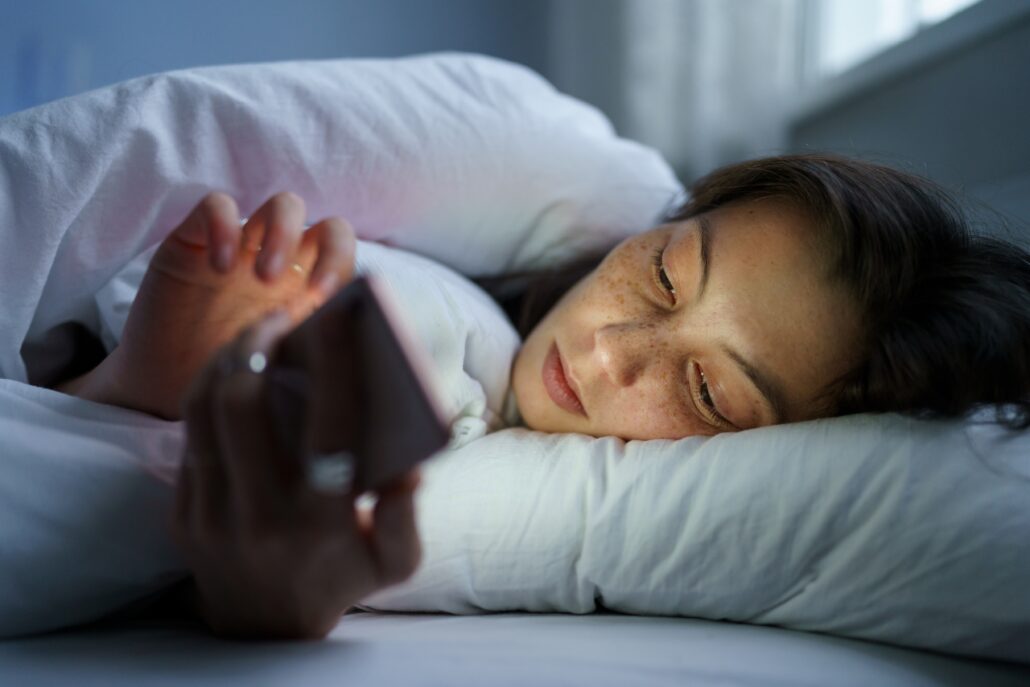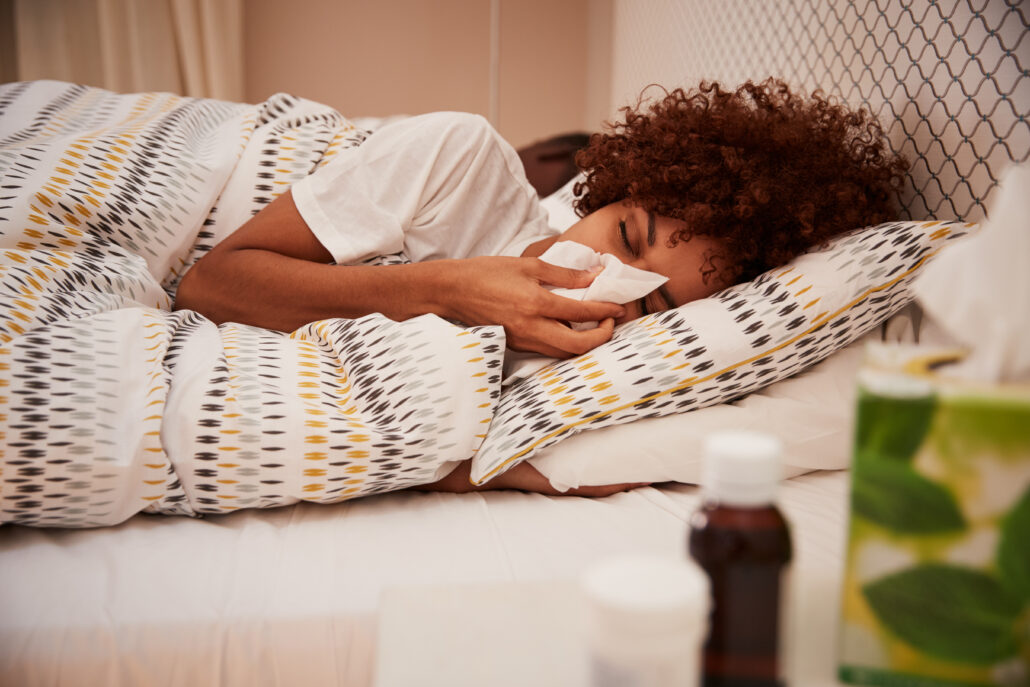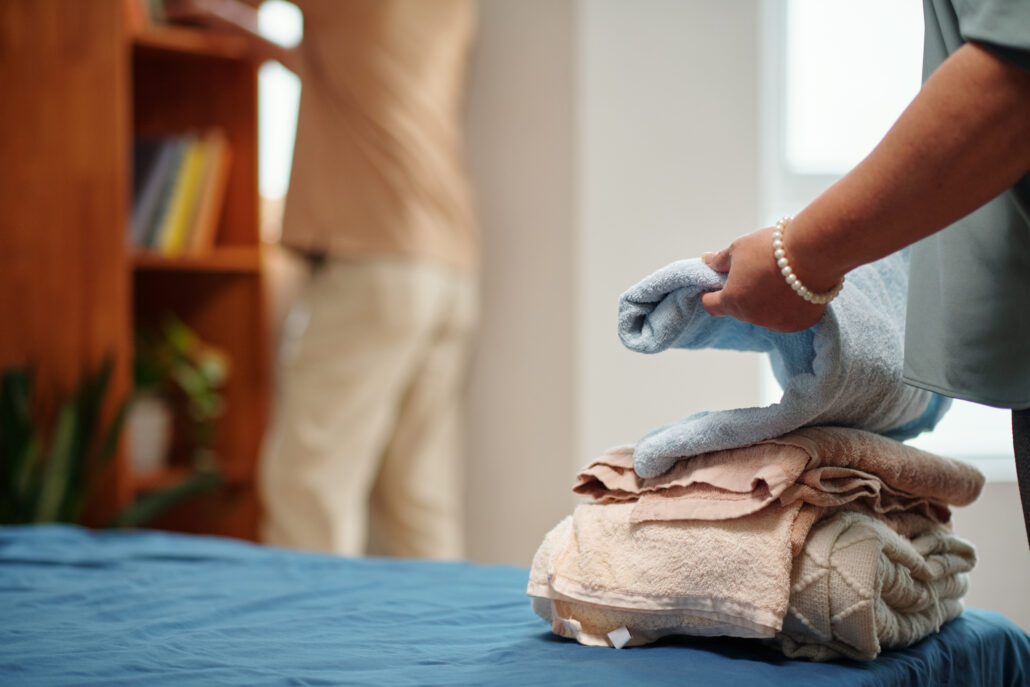
There’s a phrase that’s often used when we feel tired – the need to “rest our weary bones.” An interesting bone density study shows us that we should take this phrase literally! Bone density research from the Medical College of Wisconsin found that sleep actually helps build up your bones.
In the study, done with lab rats, scientists found that a lack of sleep resulted in the interruption of new bone formation. In addition to this, the bones the rats already had continued as usual to decrease in density. When it came to bone marrow, they found a decrease in the fat, and an increase in platelet-generating cells. What all this means is that the rats in the study experienced greatly diminished flexibility and more fragile bones.
Another study from China looked at the association between a reduction in sleep and lower bone density in middle-aged and older women, and found a correlation.
From this, we can learn that to take care of your bones, the body must be able to go through a bone remodeling cycle. The process is also vital to keep the body flexible so that we can avoid fractures. With our usual activities, we recover from normal bone wear quickly. However, when sleep deprivation negatively influences bone remodeling, bone density may decrease. So, we can become less flexible, more prone to fractures and more susceptible to osteoporosis. There’s no doubt about it – sleep is essential for bone health. Keep reading for bone health tips that can help improve bone density.
How Aging Affects Sleep
But here’s the problem: Osteoporosis is associated with aging. And as we get older, it can be more difficult to get the good night’s sleep that we need. One reason for this is that melatonin, also known as the “sleep hormone” because it impacts sleep, decreases with age. The body produces melatonin based on the amount of light that we are exposed to. Getting some sunlight in the daytime helps the body produce melatonin at night when it’s dark. The combination of lower melatonin levels that come with age and loss of sleep puts us in a downward spiral that accelerates bone loss.
We can’t avoid aging, and we can’t control some of the other risk factors for osteoporosis, such as:
- Women are more likely to get osteoporosis, particularly after menopause. Building bone density after menopause can be a challenge for many older women and lead to long-term bone loss.
- White folks and Asian folks have a higher risk for osteoporosis than other ethnic groups.
- Tall people – those 5 feet 7 inches or taller – and those who weigh less than 125 pounds have an increased risk.
- Those with a family history of osteoporosis or a diagnosis of a hip fracture are more at risk.
- Those over the age of 50 who have had previous fractures from low-level injuries are more likely to be diagnosed with osteoporosis.
Fortunately, there are many things you can control to fend off osteoporosis, including staying active and mobile. See our five bone health tips to keep your bones healthy for the years to come by making sure you get the best possible sleep:
Increase Melatonin
Besides helping with sleep, melatonin also functions as an antioxidant, reducing damage caused to bones from activity and free radicals in the environment. It can help us to heal from fractures and surgeries. While melatonin supplements can cause us to become dependent on them, there are many other natural options to help amp up our melatonin production. Get some sunlight every day, and sleep in a dark or dimly lit room. Add melatonin-rich foods to your diet: Sunflower seeds, alfalfa sprouts, almonds, eggs, goji berries and tart cherries are a few examples to help you get started on building back bone density.
Get Daily Exercise
Even just 10 minutes of aerobic exercise can help you sleep better at night. Be sure to exercise during daylight hours, not too close to bedtime. You need time to recover and relax after exercise. People often wonder which type of exercise contributes to building strong bones. Weight-bearing conditioning exercises have been shown to be beneficial for better bone health. Weighted vests for walking have become a popular and safe way to help exercise without overdoing it. Yoga helps to increase flexibility and balance, reducing the risk of falls and fractures. It’s also important to maintain a healthy body weight. Obesity is associated with sleep apnea, which disturbs sleep.
What Minerals Help Make Strong Bones?
Magnesium has been hailed as a sleep helper, and it is also great for building strong bones. Calcium, iron and zinc are also known to help protect against osteoporosis. Vitamin D helps the body to absorb calcium, so it plays a key role in fighting osteoporosis. You can get vitamin D from exposure to sunlight, and also from saltwater fish, liver or vitamin D-fortified foods.
Avoid Alcohol and Tobacco
We know that alcohol at night interferes with sleep, but did you know that alcohol is linked to lower bone density too? Tobacco is also a culprit. Avoid these substances as much as possible.
Get Screened
Of all the health tips for strong bones that we’ve discussed, this may be the most important. Taking the initiative and speaking with your doctor about getting an osteoporosis screening is crucial to ensure bone health for the long-term. Osteoporosis comes on so slowly, you might not be aware that you have it until you actually break a bone. When identified early on, osteoporosis can be treated effectively before it causes bone fractures.
And lastly, make sure you are sleeping on a comfortable and supportive mattress. No two bodies are alike – we all have unique bones! When shopping for a mattress, feel free to “test rest” each one by stretching out as you normally would while sleeping. Your mattress is an important ally in helping you to get the sleep you need to protect your bones.
Discover five tips to help promote better sleep and improve bone health from @BetterSleepOrg @CoffeyTalk.Sources:
- https://pubmed.ncbi.nlm.nih.gov/22946089/
- https://www.sciencedirect.com/science/article/abs/pii/S8756328211011513
- https://www.medicalnewstoday.com/articles/155646#causes-and-risk-factors
This blog provides general information about sleep and sleep products. The words and other content provided in this blog, and in any linked materials, are not intended to replace a one-on-one relationship with a qualified healthcare professional. This blog should not be construed as medical advice or used to diagnose, treat, prevent or cure any disease or condition. If the reader or any other person has a medical concern, then he or she should consult with an appropriately licensed physician or other healthcare professional. This blog is not a substitute for professional medical advice, diagnosis or treatment, and should not be relied upon to make decisions about your health or the health of others. Never disregard professional medical advice or delay in seeking it because of something you have read on this blog or elsewhere on bettersleep.org. If you think you may have a medical emergency, then immediately call your doctor or dial 911.



